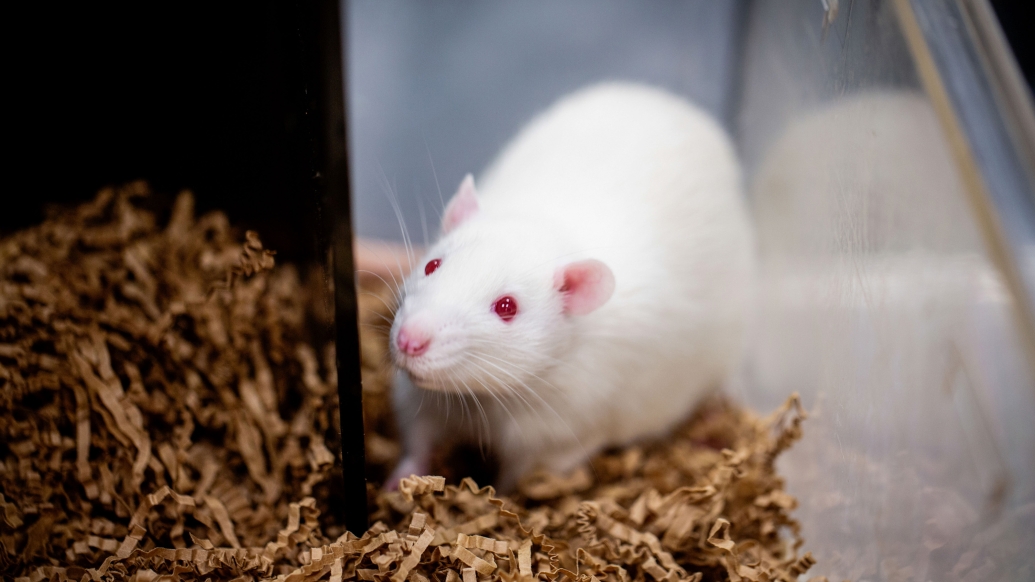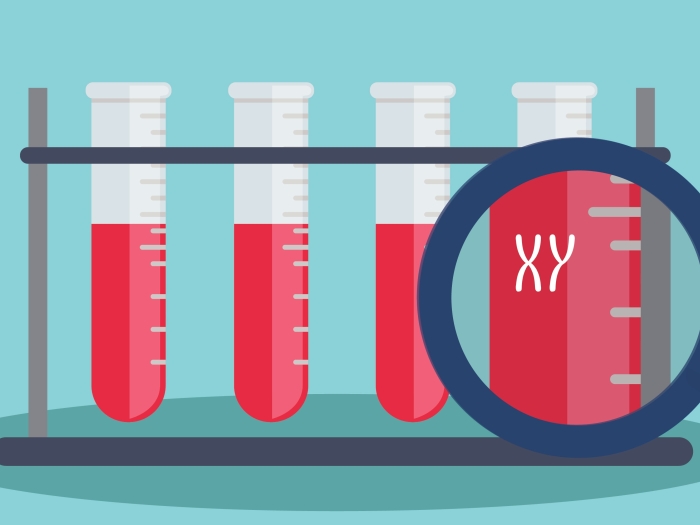The new genome could help researchers using rat models for the study of DNA, RNA, evolution, genes linked to disease risks
4:11 PM
Author |

The lab rat is a classic icon of medical research, and for good reason: Since the early 1800s, scientists have relied on rats as a powerful model for discoveries related to human health and disease.
Specifically, research with rats has led to insights into the genetic underpinnings of cardiovascular disease, hypertension, diabetes, immunity, tumorigenesis, among other conditions.
A new study from U-M and several collaborating institutions, including the University of Tennessee Health Science Center, provides insights into a new and improved reference genome for Rattus norvegicus, called mRatBN7.2, generated in 2020 with the Darwin Tree of Life/Vertebrate Genome Project, based in the United Kingdom.
The updated genome fills in gaps and corrects inaccuracies within the previous reference genome Rnor_6.0, said co-lead author Jun Li, Ph.D., professor of human genetics and computational medicine and bioinformatics at the University of Michigan Medical School.
“In the life history of the reference genome of the rat, the new version is a big jump. For mRatBN7.2, the technology for sequencing and for piecing together the DNA reads is much better than in the past,” he said.
A reference genome is created from the DNA of a model organism and used by researchers as a type of standard blueprint for all the genes in an animal model. The first rat reference genome was generated shortly after the ones for humans and mice were created in the early 2000s.
In the new paper, published in Cell Genomics, the team outlines their findings from a comparison of the new map to the old, summarizing the changes therein. For example, they analyzed 120 strains and substrains of rats and found 20 million sequence variations, providing a fuller picture of the relationships between laboratory rats.
The revamped reference enables better, more accurate findings for researchers using rat models for the study of DNA, RNA, evolution, or genes linked to disease risks, noted Li.
“All of these studies require a bioinformatic foundation about how to name things correctly with a stable nomenclature and a fixed location on the map,” said Li.
“A better map that describes the structure of the genome is helpful for adding other annotations for landmark features. As mapping technologies improve, we will continue to refine the map, just like a cartographer today will take advantage of satellite photos.”
Additional authors: Li shares senior authorship with Hao Chen, Ph.D., of the University of Tennessee Health Science Center. The first authors of the paper are Tristan V. de Jong, Ph.D. of University of Tennessee Health Science Center and Yanchao Pan, Ph.D., of the Department of Human Genetics at U-M Medical School.
Also: Pasi Rastas, Daniel Munro, Monika Tutaj, Huda Akil, Chris Benner, Denghui Chen, Apurva S. Chitre, William Chow, Vincenza Colonna, Clifton L. Dalgard, Wendy M. Demos, Peter A. Doris, Erik Garrison, Aron M. Geurts, Hakan M. Gunturkun, Victor Guryev, Thibaut Hourlier, Kerstin Howe, Jun Huang, Ted Kalbfleisch, Panjun Kim, Ling Li, Spencer Mahaffey, Fergal J. Martin, Pejman Mohammadi, Ayse Bilge Ozel, Oksana Polesskaya, Michal Pravenec, Pjotr Prins, Jonathan Sebat, Jennifer R. Smith, Leah C. Solberg Woods, Boris Tabakoff, Alan Tracey, Marcela Uliano-Silva, Flavia Villani, Hongyang Wang, Burt M. Sharp, Francesca Telese, Zhihua Jiang, Laura Saba, Xusheng Wang, Terence D. Murphy, Abraham A. Palmer, Anne E. Kwitek, Melinda R. Dwinell, and Robert W. Williams.
Funding: The study was supported in part by the National Institute of Drug Abuse and the Rat Genome Database.
Citation: “A revamped rat reference genome improves the discovery of genetic diversity in laboratory rats,” Cell Genomics. DOI: 10.1016/j.xgen.2024.100527
Sign up for Health Lab newsletters today. Get medical tips from top experts and learn about new scientific discoveries every week by subscribing to Health Lab’s two newsletters, Health & Wellness and Research & Innovation.
Sign up for the Health Lab Podcast: Add us on Spotify, Apple Podcasts or wherever you get you listen to your favorite shows.

Explore a variety of healthcare news & stories by visiting the Health Lab home page for more articles.

Department of Communication at Michigan Medicine

Want top health & research news weekly? Sign up for Health Lab’s newsletters today!





